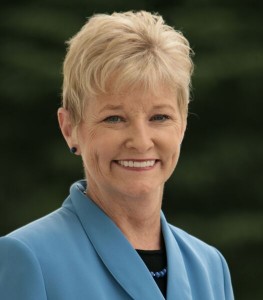 Last week marked the conclusion of the 2015 Legislative Session, which ended on an overall positive note.
Last week marked the conclusion of the 2015 Legislative Session, which ended on an overall positive note.
One Legislative victory was toning down Senate Bill 350, another big government environmental bill which would have required a 50% reduction in California’s petroleum usage by 2030. Thanks to an amendment taken close to the end of session, California drivers will not be forced to comply with the unrealistic task of cutting their gasoline use in half over the next 15 years.
Republicans also held the line against taxes, and I am happy to report no new taxes were created this year.
But even with victories like these, our work is far from done.
We are still in the middle of two special sessions to find new, permanent sources of funding for our state’s healthcare system and transportation infrastructure. These special sessions are not subject to regular legislative deadlines and can still convene at any time.
In the First Extraordinary Session on Transportation and Infrastructure Development, Governor Brown has directed the Legislature to “enact permanent and sustainable funding to maintain and repair the state’s transportation and critical infrastructure, improve the state’s key trade corridors and complement local infrastructure efforts.”
This does not mean the Legislature needs to raise existing taxes or create new ones. In fact, Californians already pay more in gasoline taxes and transportation fees than residents of any other state. Governor Brown has stated we have $59 billion in deferred road maintenance, an ominous number inflated by the fact that the State of California spends $501,136 per mile of highway; more than three times the national average.
The problem with California’s transportation system is not a lack of revenue. California’s taxpayers already contribute more than their fair share. To fix our highways, we need to change our spending priorities and ensure transportation dollars are actually being spent for transportation purposes.
Unfortunately, Governor Brown and Legislative Democrats have made it clear additional taxes are their solution of choice.
The Senate Committee on Transportation and Infrastructure Development has already killed several common sense Republican bills. These Republican measures would require that existing cap and trade revenue currently diverted to High Speed Rail be used to repair our roads, require Caltrans to shift towards more affordable private contracting and give voters the ability to redirect the remaining High Speed Rail bond money to road repairs.
While these Republican proposals have been taken off the table, Democratic plans to raise transportation taxes still stand a chance of advancing.
Governor Brown recently unveiled a proposal that would raise the gasoline tax six cents per gallon and increase the diesel tax by 11 cents. The Governor’s plan would also institute a new $65 fee added to vehicle registration. Democrat Senator Jim Beall has a similar proposal that would boost taxes even higher. Under SB X1-1, the gasoline tax would increase 12 cents per gallon, while the diesel tax would increase by 22 cents. It would also increase the annual vehicle registration fee by $35 for most cars and $100 for electric vehicles.
Rather than raise taxes, we should institute policies to increase transparency, be more prudent when spending public funds and ensure the transportation dollars we already collect are actually used for transportation. It is possible to rebuild our roads without reaching further into the pockets of already overburdened taxpayers.
Much as we fought off new taxes in the regular session, Legislative Republicans must continue to stand firm in opposition to proposed special session taxes.
Elected in March 2015, Sharon Runner represents portions of Los Angeles and San Bernardino Counties as Senator for the 21st District. Her district includes the Antelope Valley, Victor Valley and portions of the Santa Clarita Valley. For more information, visit http://district21.cssrc.us/.

